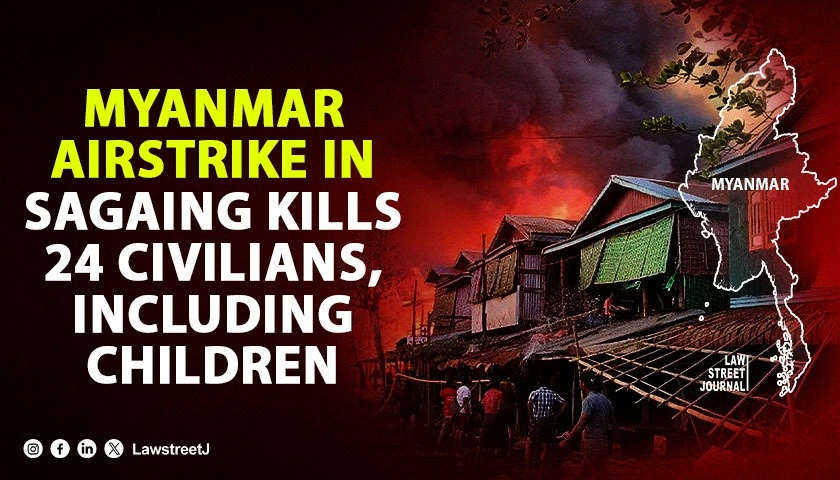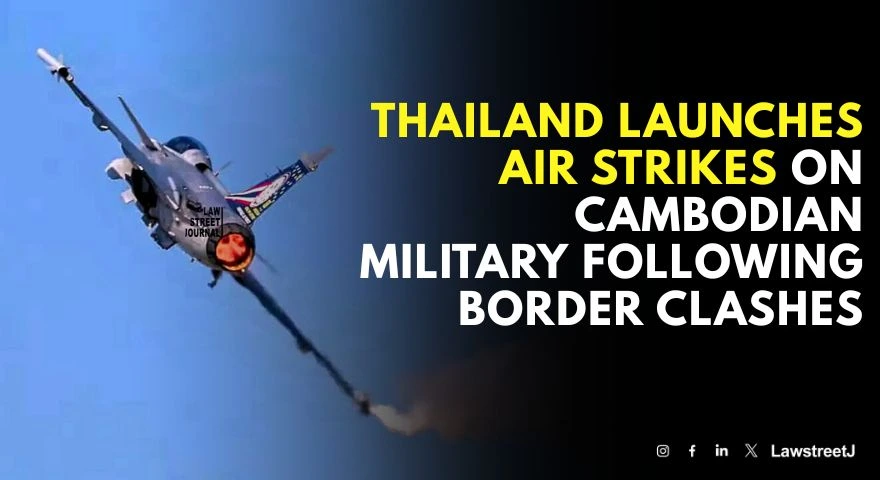Myanmar: At least 24 civilians, including several children, were killed when Myanmar’s military carried out an airstrike on October 8 in the Sagaing Region. The attack struck Nyaung Kone village in Kanbalu Township, a community identified with local resistance forces. Witnesses and local administrators confirmed that women, children, and elderly residents were among the dead. Reports indicate that the raid involved glider aircraft and aerial explosives. It stands out as one of the deadliest single incidents targeting civilians since the country’s 2021 military coup. The United Nations and several human rights groups have condemned the strike, voicing concern over the continued targeting of non-combatants.
The crisis in Myanmar has deepened since the military ousted the elected government of Aung San Suu Kyi on February 1, 2021. The coup set off widespread protests that later evolved into an armed resistance. Ethnic armed groups and newly formed People’s Defense Forces (PDFs) have joined forces against the ruling junta. Data compiled by the Armed Conflict Location & Event Data Project (ACLED) records more than 6,000 violent incidents involving both state and non-state actors since the coup, claiming over 30,000 lives. Sagaing has become one of the main conflict zones, with regular air raids and ground clashes continuing through 2023 to 2025.
The Tatmadaw, Myanmar’s armed forces, have increasingly turned to air power to suppress opposition movements. According to the UN Office for the Coordination of Humanitarian Affairs (OCHA), over two million people across the country have been displaced since the coup, with nearly 400,000 of them in Sagaing as of September 2025.
Questions Under International Humanitarian Law
Legal observers say the Sagaing attack raises serious concerns under international humanitarian law (IHL), particularly relating to the principles of distinction and proportionality. Article 51 of Additional Protocol I to the Geneva Conventions forbids direct attacks on civilians and requires all warring parties to differentiate between combatants and non-combatants. Experts affiliated with the International Commission of Jurists (ICJ) have noted that using glider aircraft to bomb a populated village could amount to a breach of IHL and may qualify as a war crime under Article 8 of the Rome Statute of the International Criminal Court (ICC).
Although Myanmar has not ratified the Rome Statute, the ICC has previously conducted preliminary reviews into alleged crimes committed on its territory, including those linked to the Rohingya crisis. In 2022, the UN Human Rights Council adopted Resolution A/HRC/49/L.18, calling on member states to pursue accountability for military violations in Myanmar.
Domestically, accountability remains elusive. Myanmar’s judiciary operates under military authority, and there have been no independent inquiries into civilian casualties from air raids. The parallel National Unity Government (NUG), formed by ousted lawmakers, has called on the Independent Investigative Mechanism for Myanmar (IIMM) to examine the latest strike.
Humanitarian Situation and Global Reaction
Rescue teams in Nyaung Kone reported extreme difficulty in reaching the site because of continuing aerial surveillance and fear of repeat attacks. Local volunteers said many victims remained buried under debris hours after the bombing. Limited access and destroyed infrastructure have further delayed emergency assistance. UNICEF condemned the deaths of children, urging all parties to respect the protection of civilians.
Tom Andrews, the UN Special Rapporteur on human rights in Myanmar, described the incident as a reminder of the “urgent need for coordinated international action” to end the junta’s impunity. The Association of Southeast Asian Nations (ASEAN) has continued to promote its Five-Point Consensus peace plan, but progress remains slow. The bloc’s special envoy has yet to gain entry to affected regions, and engagement with the junta remains largely stalled.
As of October 9, India, Thailand, and China—Myanmar’s neighboring states—had not released formal statements. Civil society organizations in these countries have urged their governments to facilitate humanitarian corridors and support sanctions against responsible officials.
The October 8 airstrike in Sagaing Region underscores a worsening humanitarian and legal crisis in Myanmar. With mounting civilian casualties and little prospect for domestic justice, international mechanisms face growing pressure to respond.










Gaurisha Oct 10, 2025
Very insightful 👏🏻